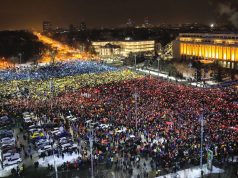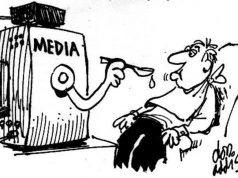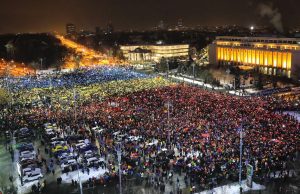From the very outset the main argument in favour of successful outcome of the British referendum was based on “common sense”. The island of Britain never had a profound relationship with the project to integrate Europe. Nor a sense of the historical stakes, or a conviction of the meaning of the gradual interweaving of the European nations. The price of rejecting the call to leave should have been that single, but steadfast bastion of their continued membership. That, however, was not enough!
The others prevailed. Nevertheless, it would be a political mistake to describe them purely and simply and less educated, and less integrated. True, they will be some of the most to suffer from what will happen. Industry will continue to leave at greater paces than before. Central and coastal England will continue to lose people. Inflation always hits the lowest income families hardest. The political correctness which incessantly pushed the disenfranchised Eastern Europeans to the forefront, will to a large extent continue. Many of those who voted will soon regret what they have done.
However, if Europe wants to carry on, it will have to understand these people better, and not just to paint them as caricatures. These people are not just in Great Britain. They did not appear yesterday, nor will they disappear tomorrow.
They are the people who lost out on globalisation. They are the people who have been forced out of the industries which have abandoned them, those same industries which were unable to make the leap from the previous century into the present. Confused and in a world which they no longer recognise, a world which frightens them and in which they can make no plans for their future, they have built their defensive walls of prejudice and mistrust in institutions and politicians. They were the people who believed in the photographs of David Beckham and James Bond. They did not believe in the Central Bank, nor the Chancellor of the Exchequer, university lectures and everyone who came out to explain the risks.
Such losses, however, cannot simply be put down to the “victories of populism”. They are first and foremost the failures of cowardly and self-believing politicians who cannot solve the rebus of the vocation they have chosen for themselves.
Before everyone’s eyes Nigel Farage wrote the agenda, conquered political territories, created false dilemmas and won political points for himself.
David Cameron followed in his shadow, step by step, subject by subject. Now under the intellectual view of the leader of the Labour Party, the herald of independence tore out more of the political heartland of England. With the collapse of Cameron, the entire political idea that this could be the solution to the growing dissatisfaction also crumbled.
We all know the process that ascribes to the European Union some sort of magical destructive force. The crooked cucumber was not a figment of our imagination. For the past two decades a whole series of risks and liabilities of the changing world we live in have been laid on the scales: immigrants, closed factories, terrorists and refugees. Despite all its imperfections, it continues to be able to do only as much as national politicians allow it. It reacts to all manner of crises with one Euro thrown at every hundred produced in the member states. It has to catch illegal migrants without the necessary authority, equipment or people. When Europe was blamed for the economic crisis, governments generously handed it one Euro and told it to go the financial markets to multiply it by 15.
The EU can be killed off not by the hatred shown towards it, but by the irreversible process in which it is made out to be the inevitable and constant culprit of the ungifted and helpless national elites. By the contagious desire to be blamed for all national failures. One example of this is the inability of a number of British governments to resolve the problems with pressure on public services in regions with the highest levels of immigrants. Or the lack of desire to restrict the greater number of non-European immigration to the Island, which without doubt creates greater problems than the Eastern Europeans.
The European governments and Union now have to do something very difficult; they need to optimise it, reduce it and expand it, all at the same time. It has to become better at what it does: less bureaucracy, better communication between individual policies. It needs to withdraw from certain things. There need to be less regulation and investment instead of subsidies. It needs to expand where its citizens clearly want it to. It needs to provide more security, more investments in the economy and the single market. This will not be easy and will require real leaders with vision. A vision which does not simply repeat “more Europe” but finds and protects the tangent between the necessary and possible integration.
There will be disappointments for those who are celebrating today. There are different types of mistrust in the EU and few of them are connected with the desire to leave it irreversibly. What is more, the attractiveness of today’s British choice will be re-evaluated in time when faced the economic future. It will be assessed in terms of the industries which choose to abandon its shores. Industries in which many of those who rejected membership work. It will be assessed also in terms of the British efforts to find a working formula for its citizens, and not the global elite.
Today, more than ever, the EU has a problematic status quo. It cannot rely on the visibility of its benefits, the periphery nature of its problem or automatic approval. Citizens and politicians have to model it with regard to the many challenges of how they want to live in this century. They have to consider how to combine national and supranational identity. They will have to decode, present and protect the many benefits they enjoy in their daily lives, to counter the invented false alternatives, and to defend their right to continue and to develop one of the greatest achievements of our continent.
If we do not do it, we are condemning ourselves to failure!
In the world of easily invented worlds, defensive strategies are no longer working. In order to achieve this, however, politicians have to come out of their own imaginary worlds, of condescension and disregard, selfies in the corridors of Brussels and self-satisfaction. The signs may be scarce, but they are beginning to.
So, more than at any time before, the protection of everything that Europe has achieved cannot be left only to them. Not least because they are prepared to throw it away so easily with a single vote!








